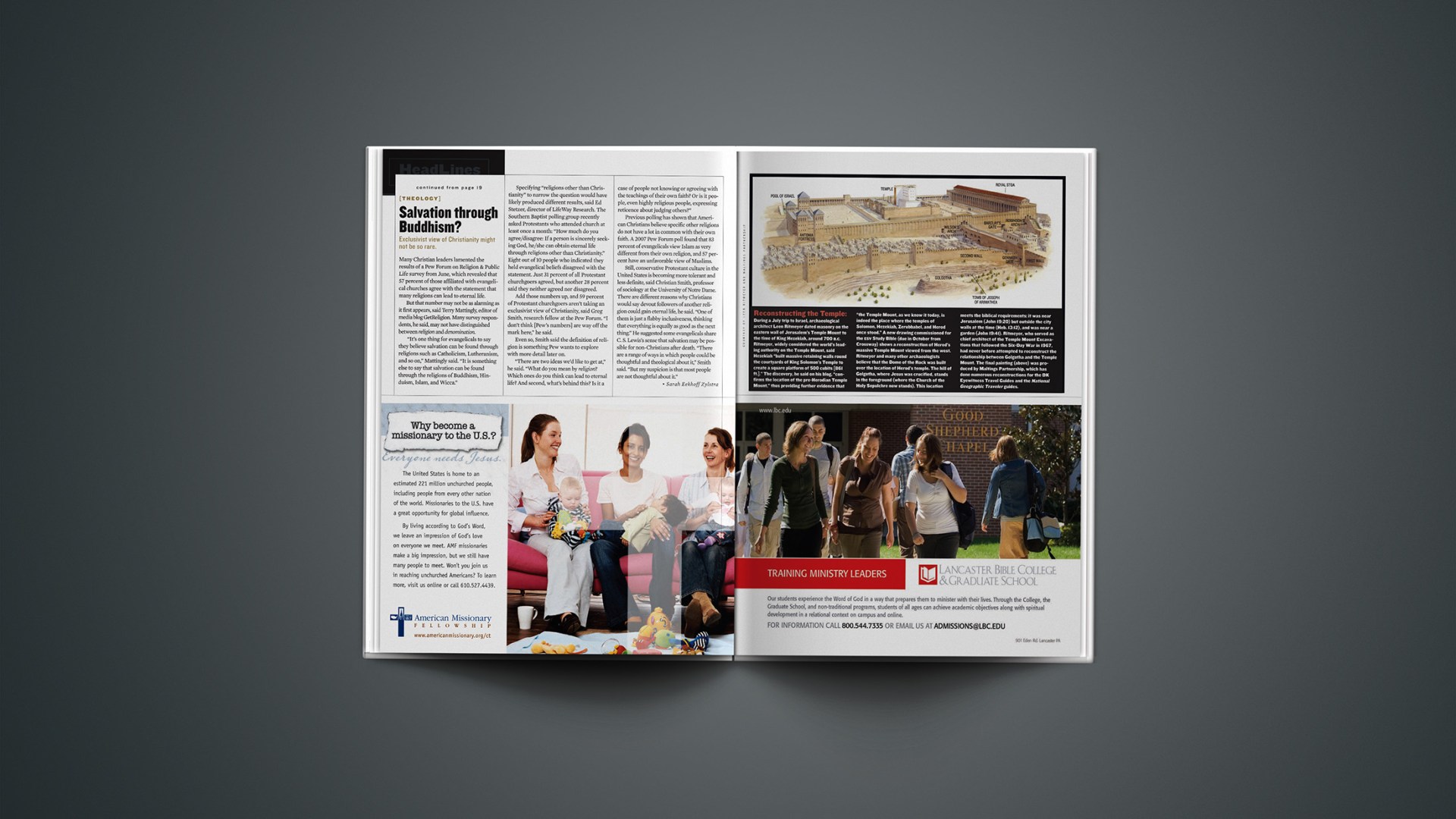Many Christian leaders lamented the results of a Pew Forum on Religion & Public Life survey from June, which revealed that 57 percent of those affiliated with evangelical churches agree with the statement that many religions can lead to eternal life.
But that number may not be as alarming as it first appears, said Terry Mattingly, editor of media blog GetReligion. Many survey respondents, he said, may not have distinguished between religion and denomination.
“It’s one thing for evangelicals to say they believe salvation can be found through religions such as Catholicism, Lutheranism, and so on,” Mattingly said. “It is something else to say that salvation can be found through the religions of Buddhism, Hinduism, Islam, and Wicca.”
Specifying “religions other than Christianity” to narrow the question would have likely produced different results, said Ed Stetzer, director of LifeWay Research. The Southern Baptist polling group recently asked Protestants who attended church at least once a month: “How much do you agree/disagree: If a person is sincerely seeking God, he/she can obtain eternal life through religions other than Christianity.” Eight out of 10 people who indicated they held evangelical beliefs disagreed with the statement. Just 31 percent of all Protestant churchgoers agreed, but another 28 percent said they neither agreed nor disagreed.
Add those numbers up, and 59 percent of Protestant churchgoers aren’t taking an exclusivist view of Christianity, said Greg Smith, research fellow at the Pew Forum. “I don’t think [Pew’s numbers] are way off the mark here,” he said.
Even so, Smith said the definition of religion is something Pew wants to explore with more detail later on.
“There are two ideas we’d like to get at,” he said. “What do you mean by religion? Which ones do you think can lead to eternal life? And second, what’s behind this? Is it a case of people not knowing or agreeing with the teachings of their own faith? Or is it people, even highly religious people, expressing reticence about judging others?”
Previous polling has shown that American Christians believe specific other religions do not have a lot in common with their own faith. A 2007 Pew Forum poll found that 83 percent of evangelicals view Islam as very different from their own religion, and 57 percent have an unfavorable view of Muslims.
Still, conservative Protestant culture in the United States is becoming more tolerant and less definite, said Christian Smith, professor of sociology at the University of Notre Dame. There are different reasons why Christians would say devout followers of another religion could gain eternal life, he said. “One of them is just a flabby inclusiveness, thinking that everything is equally as good as the next thing.” He suggested some evangelicals share C. S. Lewis’s sense that salvation may be possible for non-Christians after death. “There are a range of ways in which people could be thoughtful and theological about it,” Smith said. “But my suspicion is that most people are not thoughtful about it.”
Copyright © 2008 Christianity Today. Click for reprint information.
Related Elsewhere:
Elesha Coffman wrote about “The Problem with Counting Christians” after the release of the first part of Pew’s Religious Landscape Survey results.










